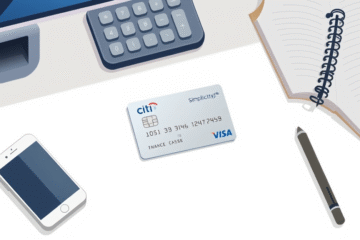Your Payment History is the cornerstone of your financial well-being.
Understanding how timely payments impact your credit is crucial for maintaining a healthy financial profile.
In today’s credit-driven economy, your ability to manage payments effectively can dramatically influence your financial opportunities and access to better lending terms.
Let’s explore how consistent, on-time payments can transform your credit standing and open doors to improved financial possibilities.
The Importance of Timely Payments
Timely payments play a crucial role in maintaining a healthy credit score. Consistently paying bills on time demonstrates reliability to lenders. This can significantly improve your financial standing.
There are numerous benefits to maintaining good payment habits. Individuals can expect the following advantages:
- Boosting credit scores: Meeting payment deadlines can enhance your creditworthiness.
- Avoiding late fees: On-time payments keep bills lower by avoiding additional charges.
- Enhancing loan access: Better credit scores enable access to loans with favorable terms.
- Building trust with financial institutions: Timely payments establish a trustworthy relationship with banks and lenders.
- Improving financial management skills: By staying on top of payment due dates, individuals become more disciplined.
Each of these factors contributes to a more stable personal finance situation. Understanding this underscores the importance of developing and maintaining consistent payment routines.
Positive Credit History
A positive credit history is established by consistently meeting payment obligations and responsibly managing credit over time. Key factors include making payments on time, maintaining low credit balances, and avoiding defaults. Such behaviors reflect reliable financial habits, which are crucial for lenders when assessing creditworthiness. This trustworthiness can lead to favorable financing terms and increased access to credit resources. A strong credit history has a significant impact on credit scores, often translating into lower interest rates for loans and credit cards. For more on credit history, visit Capital One’s Credit History Guide. Consider the following table illustrating examples of positive and negative credit behaviors and their outcomes:
| Behavior | Type | Outcome |
|---|---|---|
| On-time Payments | Positive | Boosts credit score |
| Consistently Low Balances | Positive | Improves creditworthiness |
| Late Payments | Negative | Decreases credit score |
| High Balances | Negative | Increases risk perception |
Avoiding Late Fees and Interest Charges
Late fees and interest charges on personal loans can significantly impact overall finances by compounding debt.
Consistent and timely payments can prevent these unnecessary charges, easing financial pressure.
- Reduce long-term costs by avoiding late fees.
- Maintain a higher credit score with on-time payments.
- Decrease additional charges by minimizing interest.
- Enhance trust with lenders for future credit opportunities.
Consider this scenario: An individual owes $10,000 with a 10% annual loan interest.
If they make late payments, they incur $200 in late fees and additional $500 in interest yearly.
Timely payments could reduce this burden by over $700 annually, showcasing a no-small advantage.
This would not only improve immediate financial standing, but also offer better financial prospects with lenders.
For more insights on avoiding late fees, visit Bank of America’s Credit Card Fees FAQ.
Boosting Your Credit Score
Making payments on time is pivotal to boosting your credit score, as it accounts for a significant portion of it.
Your payment history, representing about 35% of your credit score calculation, holds substantial weight.
This means consistently meeting payment deadlines impacts your credit score positively.
Each timely payment adds a favorable mark to your credit report, showcasing your reliability to lenders.
Furthermore, by avoiding late fees and interest charges, you shield yourself from unnecessary financial burdens.
Credit scores reflect your overall creditworthiness, thus maintaining a solid payment history is beneficial.
According to Experian’s guide, on-time payments are the cornerstone of a good credit score.
Financial institutions recognize your diligent payment practices by offering better lending terms.
Additionally, you may receive higher credit limits, enhancing your financial flexibility.
Explore more on maintaining this essential financial habit in their credit score improvement tips.
Endeavor to prioritize and sustain on-time payments for long-term financial health.
“}
Enhancing Loan Accessibility
A positive credit history significantly improves access to diverse loan opportunities, acting as a mainstay for financial leverage.
- Mortgage Loans: Individuals with a good credit history can secure mortgage loans at lower interest rates. This translates to more affordable monthly payments over the loan term. A strong credit profile signals reliability to lenders, reducing their risk.
- Auto Loans: An excellent credit score entitles individuals to more favorable terms on car loans. As a result, borrowers can often negotiate lower incentives or even reduced prices when purchasing a vehicle.
- Personal Loans: With a positive credit history, obtaining personal loans becomes easier and more straightforward. This flexibility allows for borrowing without collateral, providing a financial cushion for unexpected expenses.
- Credit Cards: A strong credit profile opens doors to premium credit cards with higher limits, better rewards, and lower APRs. Access to these benefits enhances purchasing power while promoting smart financial management.
- Small Business Loans: Entrepreneurs benefit significantly by leveraging their credit history to secure funds. This is particularly essential for startups and small businesses aiming to expand operations or invest in new ventures. A positive credit record not only eases the loan approval process but can also influence the loan amount positively.
Building Trust with Lenders
Building trust with financial institutions begins with a strong history of on-time payments. Lenders highly value borrowers who consistently meet their payment obligations. This reliability signals that the borrower is trustworthy and dependable.
According to a lending expert from APGFCU, “A reliable payment history is the cornerstone of building trust with lenders.” Hence, a positive payment record benefits both borrower and lender.
Moreover, trust allows lenders to offer more favorable loan terms, such as lower interest rates and increased credit limits. This mutual confidence fosters long-term financial relationships, promoting steady growth and progress.
Consequently, maintaining a consistent payment schedule is not just about avoiding penalties. Instead, it actively enhances your financial reputation in the eyes of credit providers, leading to better opportunities.
The collaboration between borrower and lender becomes mutually advantageous, ensuring success for both parties. By prioritizing timely payments, trust naturally develops, paving the way for smoother financial transactions.
Securing Better Credit Terms
A solid credit history allows consumers to negotiate better credit terms, as lenders see them as less risky borrowers.
This enables consumers to access loans and credit cards with favorable terms, like lower interest rates and higher credit limits.
Moreover, those with a positive credit history often qualify for exclusive offers and perks that aren’t available to others.
However, individuals with poor credit history may face higher interest rates and limited credit options, leading to increased financial stress.
Here is a comparison table illustrating the differences in terms:
| Credit Aspect | Good Credit | Poor Credit |
|---|---|---|
| Interest Rates | Low (e.g., 5-10%) | High (e.g., 15-25%) |
| Credit Limits | Higher Limits Offered | Lower Limits Imposed |
| Loan Approval | Easy Approval | Potential Denials |
| Additional Perks | Better Rewards and Offers | Fewer Benefits |
Sources like Allianz Trade emphasize the importance of maintaining a good payment history.
To leverage better terms, consumers need to consistently meet payment deadlines and use credit responsibly.
By doing so, they can improve their credit score, securing the best financial opportunities available.
Maintaining a positive payment history is your key to financial success.
By consistently making timely payments, you’re not just avoiding penalties; you’re investing in your financial future and creating opportunities for better credit terms and financial flexibility.



0 Comments